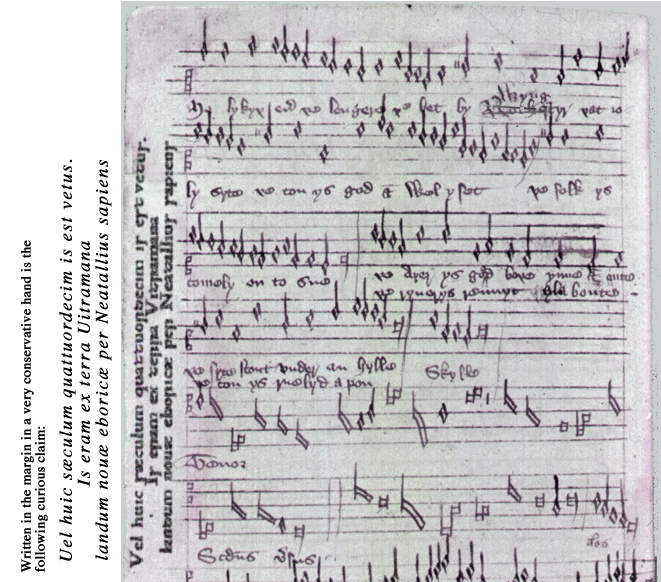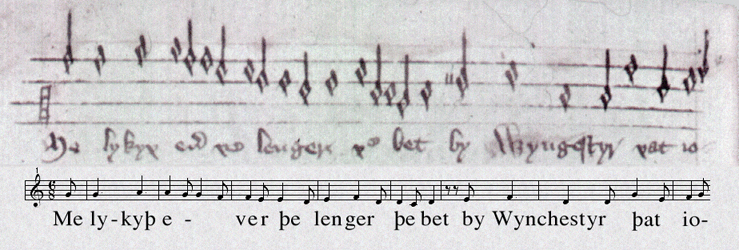 |
|
|
|
From 17th April 1985
My fellow Rochestarians, good morning.
Some time ago I talked to you about the founding of our jolly city and as this is the millennium of that happy event, I thought that I should get the ball rolling for some sort of celebration by telling you more.
You will remember no doubt that Rochester was founded by Irish Monks in the year 985, but in saying that one has by no means come to the end of the beginning, because they had with them an Englishman, a native of High Rochester (a small village in the Cheviot Hills in northern England), whose name was . Apparently Neatanniel was responsible for the choice of Swillburg as a site for the settlement, (though luckily for him, if you remember, he was not responsible for it being called Hvitramannaland). He was also responsible for the survival of one of the most endearing creations of that early period. We don’t know if he wrote it or not but his name will always be associated with the Rochester song, and we will always feel a deep sense of gratitude to him for bringing (or perhaps sending) the song back to England. At the risk of re-hashing well known history let me remind you of my discovery that a song long dismissed out of hand by scholars as being about Winchester was in fact quite interesting, being about Rochester. In its dusty manuscript (Addnl. 5943) in Cambridge University Library it had lain unregarded since it was copied in the late fourteenth century until I chanced upon it. 
The song starts “Me lyketh1 (meaning that he is pleased) ever, the longer the bet by …” and then has been crudely altered to replace Rochester, a city to which the noble sentiments it expresses most happily apply, with Winchester, which has only its syllable count to recommend it.
Now of course comes the really exciting part of my discovery---in the margin of the song was a note in execrable Latin to the effect that the song had been copied from a very ancient codex (ancient even in the late fourteenth century) that had been brought by, as he is called, Neatallius from a place referred to as "Vitramana landum novæ eboricæ” I can still remember the frisson of delight when I first realized that I had found our founder’s song.
Anyway I’ve spoken to you long enough, and it’s now time to hear the Rochester song. We are lucky in that Colleen Liggett one of the world’s leading exponents of early English singing techniques is here to sing for us. I have very slightly modernized2 the wording.
| | I like ever, the longer the better suits me,
Rochester that jolly city.
The town is good, generally.
The folk aren't too bad to see.
The Genesee runs all about:
The city stands beneath Mount Hope Cemet’ry.
Lake Ontario is there without a doubt:
The town is ruled consistently.
| Cheerio for now,
from Richard Howland-Bolton. |  |  |
Notes:
1 The m/s is a genuine, real one (and actually is in CUL--though one can't really say that it's been all that unregarded).
The proper words are:
Me lykyþ ever þe lenger þe bet/by Wynchestyr þat ioly cite./ Þe toun ys good & wel yset,
Þe folk ys cumly on to see./ Þe ayr is gode boþe yn & out./ Þe cyte stont bineþ an hylle.
Þe ryvers rennyþ al about./ Þe toun ys rullyd uppe skylle.
Here is what the whole page of real m/s looks like, and the first line can be interpreted like this: 
Note (particularly on the word 'ever' in this extract , but much worse later in the song) the "smale brekynge" of the notes that so got up John Wyclif's nose.
My modernisation perhaps loses some of the spirit of encomium that graces the original.
2 Here is a more literal modernization:
Me lykyþ ever þe lenger þe bet
I am always pleased (the longer the better)
by Wynchestyr þat ioly cite.
By Winchester that attractive city
Þe toun ys good & wel yset,
The city center is pleasant and well situated
Þe folk ys cumly on to see.
The inhabitants are of an attractive mien too
Þe ayr is gode boþe yn & out.
Many buildings are air conditioned and the air quality index is good
Þe cyte stont bineþ an hylle.
The city has excellent vistas of the adjacent uplands
Þe ryvers rennyþ al about.
There is good access to riverine facilities both for commercial and leisure activities
Þe toun ys rullyd uppe skylle.
No one has yet found out about the Mayor's little peccadillo.
|
<-- Go Back |
|
| |

